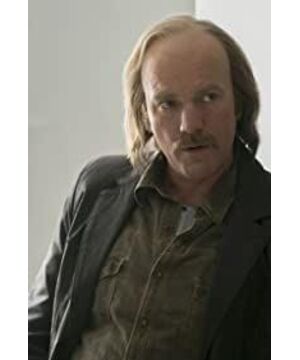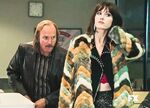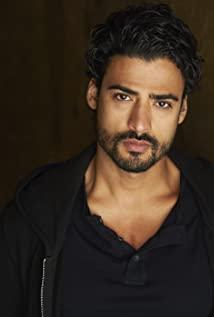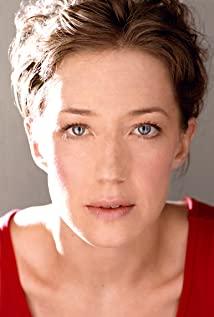I'm a big fan of Fargo's show. For the first two seasons, I watched it with a breathless stare, and then I was hooked. In my opinion, the positioning of Fargo's show is: a high-quality crime film. Although the main line of the story is the detection of police and gangsters, but every season spends a lot of thought in the attitude of "artistic films" to discuss high-level issues that ordinary police and gangster films will not discuss. The theme of the first season is good and evil. A killer preaching evil everywhere as a priest, some (Molly and Gus) think he is the devil, some (Lester) think he is God. Evil is alluring in this story, and we can totally understand how someone like Lester can't help but think that maybe Malvo's logic is right, that evil has given him a hearty revenge and a sweet life, so why not? ? (The scene where Lester killed his wife had an elevation that read "what if you're right and they're wrong" - if you're right, they're wrong?). In this story, the evil is still incomparably powerful and almost invincible. Malvo hangs all the way, no matter how he fights, he can't kill him, while the good side has been spinning around in a whirlpool of stupidity, inefficiency, error, and powerlessness. In the course of the story, the good side is so helpless and frustrated, even they themselves start to constantly ask themselves: since evil is so powerful and we are so weak, why do we still have to fight against evil? But the ending of the story is also clear: good still triumphs over evil. Why should we fight evil? Because we are human, because we have people we love and things we cherish to protect, no matter how weak or stupid we are, we will fight to the end. This is the so-called theme of the so-called invincibility of evil and the brilliance of human nature. To put it bluntly, it is not that tall. The first season is better than all kinds of delicate and rich details. The theme of the second season is forced to a new level. It seems to me that the theme of this season is the conflict between human dreams, passions, hopes, struggles and cold reality. In this story, everyone has some beautiful and simple wishes and works hard for their wishes. The young son of the gangster wants to prove that he is not a waste, the young woman in the small town wants to break free from the boring and closed environment and go to California to live a more free and beautiful life, the butcher wants to buy the butcher's shop and live the life of his wife and children on the hot kang head, the gangster The mother wants to protect the family's foundation and dignity, the daughter of the gangster wants to get rid of the patriarchal patriarchal control, the black gangster wants to make achievements and achieve himself, the police hope that good people will be rewarded and bad people will be punished by law. Everyone worked hard for their dreams that were not greedy. They were smart, brave, indomitable, and worked hard all the way, but the final result seemed to have nothing to do with their efforts. They finally found that the greatest enemy of mankind is not difficulty and failure, but confusion, emptiness, absurdity and powerlessness. In the face of mankind's beautiful aspirations, the only response from the universe to us is by accident and by aliens. The world isn't hostile to us, it just doesn't care about us, no matter how hard we try and how religious we are, it's just chaotic and empty with indifference. The best comment on this story is: "Heaven and earth are not benevolent, and all things are dogs." This idea is really much more advanced than the first season. The story of the third season was relatively loose, and at one point I had absolutely no idea where the story was going. At the end, I think the theme of the third season is actually "truth". In this story, Vargas, the bulimia capital bully, throws up this theme several times: Does the truth really exist? What the so-called "evidence" and "facts" point to, what is the truth, but we see: evidence and facts are actually unreliable. Maybe there is not only one truth, everyone will have his own truth. So, what you believe is the truth. The ending of the last episode was criticized by many people for chaos and collapse. In fact, this "truth" theme can be used to understand it: In the end, Nikki still believes that Emmit is the biggest villain (in the final confrontation, she insisted that Emmit Killing her own brother and poisoning her partner, from the audience's point of view, at least the latter one doesn't hold at all), so she single-mindedly wanted to kill Emmit. And Emmit still believes that he is basically innocent, so he intends to live on for the rest of his life without guilt (his refrigerator has pictures of his wife, children, partners, but no brother at all). The deaf man killed Emmit because he always listened to Nikki and believed in Nikki, so he believed that Emmit was extremely sinful (in fact, in the eyes of the audience, Emmit was not guilty of death at all). The policewoman still believes that evil can prevail and that the bad guys will definitely be brought to justice, so she said that we will arrest you and put you in jail right away. And Vargas still believes that there is no good or evil in the world, only the law of the jungle, money and strength can crush everything, so he said that in five minutes, someone above will come to let me go. Who is the right policewoman or Vargas, the story doesn't tell us, because maybe there is no so-called only truth in the world. Faced with such a world, we had to accept the policewoman's explanation to our son: a lot of things in this world don't make sense. We are struggling to find the truth, logic, and reason with good wishes, but the reality often lacks logic and truth like this. In fact, the theme of this truth appears several times in previous episodes. Faced with the same pile of troubles, Emmit firmly believes that everything is the fault of the brothers and the brothers' women, while Sy believes that it is all the fault of Vargas. Faced with the same crime, the policewoman firmly believes that the Stussy brothers are the core, and her boss believes that this has nothing to do with the Stussy brothers. Faced with the same stamp incident, Ray firmly believes that Emmit cheated and bullied him, and Emmit firmly believes that he can be forgiven. The truth theme itself is a good theme, but I don't think the effect of this season is much better than the previous two seasons. First, there is insufficient vagueness and randomness. The entire crime scene is very clear from the audience's point of view, so we don't deeply feel the theme of "maybe there is no truth in the world". Second, the plot of this season is relatively loose (for example, the episode in which the policewoman's stepfather wrote the novel did not echo later); many places forcefully pull up and forcefully (for example, the part about the Jewish Holocaust), making it impossible for people to enter the play; the characters The shape is not as good as the previous two seasons (this big boss does not have the soul-stirring evil feeling of Thornton in the first season, and many times he is there to talk about it is really annoying). Fargo's brain-damaged fans feel that the third season is worth watching, but it no longer has the same hooked feeling of the first two seasons. , the theme of this truth has also appeared many times in the previous episodes. Faced with the same pile of troubles, Emmit firmly believes that everything is the fault of the brothers and the brothers' women, while Sy believes that it is all the fault of Vargas. Faced with the same crime, the policewoman firmly believes that the Stussy brothers are the core, and her boss believes that this has nothing to do with the Stussy brothers. Faced with the same stamp incident, Ray firmly believes that Emmit cheated and bullied him, and Emmit firmly believes that he can be forgiven. The truth theme itself is a good theme, but I don't think the effect of this season is much better than the previous two seasons. First, there is insufficient vagueness and randomness. The entire crime scene is very clear from the audience's point of view, so we don't deeply feel the theme of "maybe there is no truth in the world". Second, the plot of this season is relatively loose (for example, the episode in which the policewoman's stepfather wrote the novel did not echo later); many places forcefully pull up and forcefully (for example, the part about the Jewish Holocaust), making it impossible for people to enter the play; the characters The shape is not as good as the previous two seasons (this big boss does not have the soul-stirring evil feeling of Thornton in the first season, and many times he is there to talk about it is really annoying). Fargo's brain-damaged fans feel that the third season is worth watching, but it no longer has the same hooked feeling of the first two seasons. , the theme of this truth has also appeared many times in the previous episodes. Faced with the same pile of troubles, Emmit firmly believes that everything is the fault of the brothers and the brothers' women, while Sy believes that it is all the fault of Vargas. Faced with the same crime, the policewoman firmly believes that the Stussy brothers are the core, and her boss believes that this has nothing to do with the Stussy brothers. Faced with the same stamp incident, Ray firmly believes that Emmit cheated and bullied him, and Emmit firmly believes that he can be forgiven. The truth theme itself is a good theme, but I don't think the effect of this season is much better than the previous two seasons. First, there is insufficient vagueness and randomness. The entire crime scene is very clear from the audience's point of view, so we don't deeply feel the theme of "maybe there is no truth in the world". Second, the plot of this season is relatively loose (for example, the episode in which the policewoman's stepfather wrote the novel did not echo later); many places forcefully pull up and forcefully (for example, the part about the Jewish Holocaust), making it impossible for people to enter the play; the characters The shape is not as good as the previous two seasons (this big boss does not have the soul-stirring evil feeling of Thornton in the first season, and many times he is there to talk about it is really annoying). Fargo's brain-damaged fans feel that the third season is worth watching, but it no longer has the same hooked feeling of the first two seasons.
View more about The Law of Vacant Places reviews











